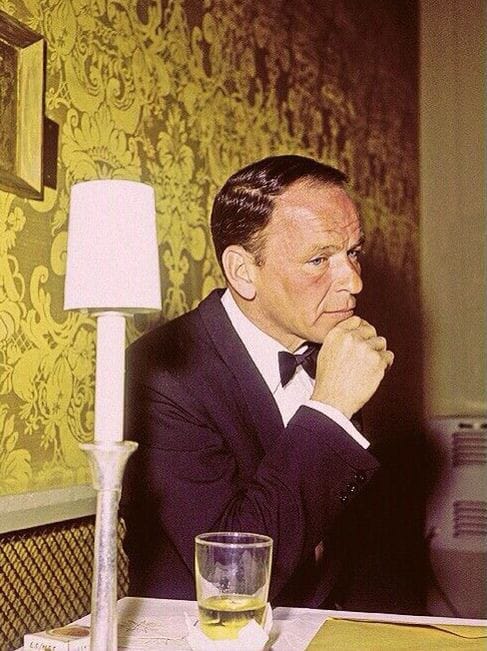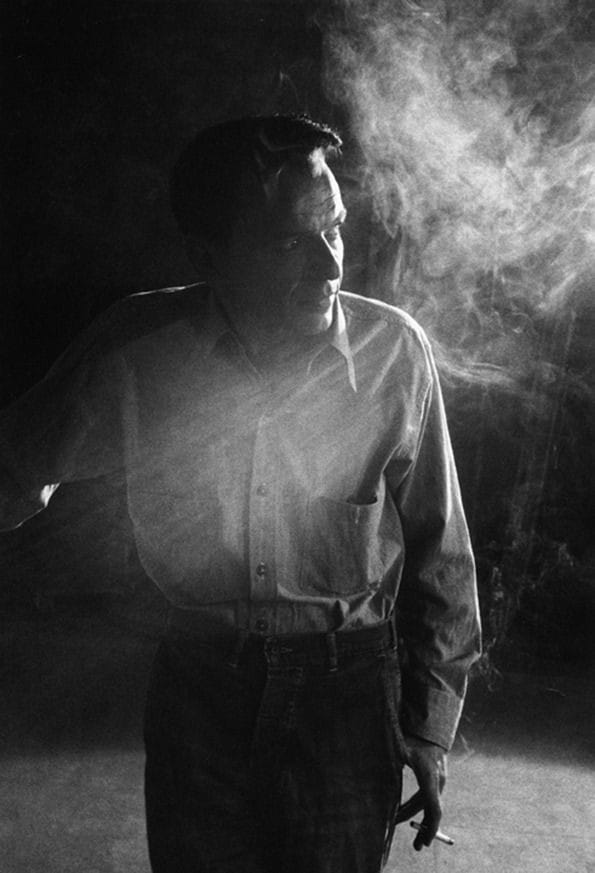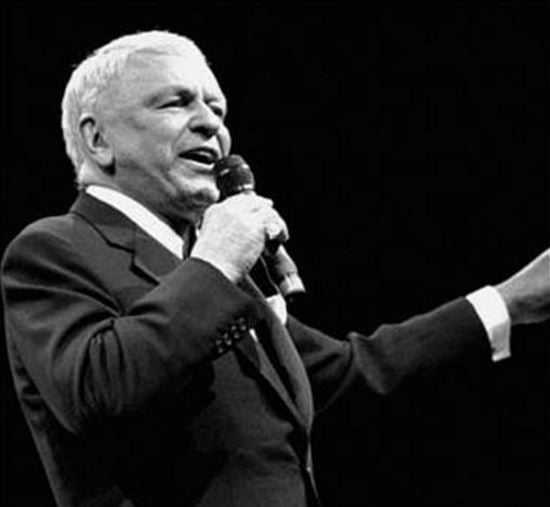
Interview: Rosa Ter Braake: founder of “Frank Sinatra Respectfulposting”, the bigger and better Facebook group about Frank Sinatra.
By Mahnuel Muñoz
Q: Who is Rosa?
A: My maiden name is Rosa Gunsing. I’m a forty-six year old woman from The Netherlands who studied English and has a research master in Linguistics. I enjoy reading, cooking and singing and have an interest in science fiction and British comedy. I am married to Serge ter Braake, who helps me to administrate the group. Serge is a historian with a PhD who published six books and countless articles, both academic and popular. Currently he has a job in copyright law. We have two children, an eleven-year old daughter with special needs and a nine-year old son.
Q: When did you meet Frank Sinatra and how did you fall in love with his art?
A: I can’t remember when I started listening to Sinatra. I feel like he was always there, though for a long time as just one of the singers I enjoyed listening to. Like most people, I mainly listened to his hit songs. Then one day, I put on “Strangers in the Night” with my non-verbal daughter present and she reacted very strongly. Her eyes went wide and she melted into the couch cushions with an extremely blissful look on her face. That made me start listening in a different way, not as background music, but focused and that’s when I really discovered the music and heard what my daughter had heard. I then wanted to know more about the man who was able to sing with such honesty and sensitivity that he could touch people’s souls in such a way.
FRANK SINATRA RADIO
Q: Do you have a favorite album or song? What are they and why?
A: I mainly play the swing songs. I love how happy and confident he sounds. Ebullient. Swaggering. Cool. I get a kick out of his phrasing and how he plays around with the lyrics and effortlessly toys with melody and rhythm. I play all the swing albums regularly. The ones I play the most are probably Ring-a-Ding-Ding, Songs for Swingin’ Lovers, and Come Dance with Me. According to Spotify, “Luck Be a Lady” is the song I play most often. Second, I play the love songs, especially the albums Nice and Easy and Moonlight Sinatra. And I have a soft spot for Days of Wine and Roses, which I feel is underrated. Even though the torch albums are gorgeous works of art and it’s amazing how much authentic and vulnerable emotion he manages to convey, I can’t listen to them too often, probably for that exact reason. It breaks my heart to listen to them.
Q: Why did you create a Facebook group and why did you give it that name?
Sinatra was much maligned during his life. Columnists, starting in the 1940s, spread horrible rumors, lies, and exaggerations about him, because he would not put up with their behavior. Most biographers used the gossip as if they were factual, credible sources and added their own judgments, opinions, and fantasies. Each new biographer used the gossip and the opinions and fantasies of the biographers before them as if they were facts. This created a mythical image that was far from the truth, but unfortunately is still believed by many people.
I realized that Sinatra seemed a very different man if I only focused on what was said by the people who actually knew him. And there were very many people who knew him or at least met him. The stories were very consistent and painted a different picture. I wanted to show the world the real Sinatra.
I started by posting my stories in other Sinatra groups, but I found that many were very badly moderated and full of scammers. And even the ones that weren’t too bad in that regard allowed members to be rude to each other and to say the most horrible things about Sinatra, his wives, and other celebrities. I noticed that members in those groups were afraid to post certain topics, such as his wives, because it would always be the same string of negative comments, often very rude. People who did enjoy the topic would just say nothing, afraid of being ridiculed. I heard from several other people besides myself that they longed for a group where they could enjoy the things they like without being brought down, a group in which members would just scroll to the next topic if they didn’t like something.
So there were several different things bothering me and then Anthony Mistrulli suggested I start my own group.
FRANK SINATRA RADIO
Q: How do you manage to maintain the level of quality of the publications and the courtesy of the members?
For my own posts, I base them mainly on the stories of people who knew Sinatra. Sometimes I take a whole anecdote or quote and add a picture that fits the text. Sometimes I write an article based on several different reliable sources, such as books or articles by people who knew Sinatra or spoken or written interviews with them. Sometimes I take a person and collect quotes from that person about Sinatra or vice versa from different sources. When it comes to the music, I trust Granata and Friedwald. I have made files (which are still always in progress), in which I put the information by person and by topic. I also type out fragments from books and transcribe spoken interviews to put in those files.
I can’t speak for how our other members make their wonderful quality content. I believe there are at least three group experts who use a similar method. I think posting quality content probably attracts more quality content. My favorite posts are the personal memories that members share, also often in comments. I never expected this at first, but the group attracted many members who met Sinatra, knew or are relatives of people in Sinatra’s circle, or even knew Sinatra himself. I am humbled by their presence in my group and their stories are my favorite.
Now for the second part of your question, the group is heavily moderated by me, Serge, and eight other moderators. We have rules that are quite strict and we do remove everything that goes against the rules. We found that any time that we leave something up that might be on the fence, negativity always attracts more negativity and such comments are often the start of a downward spiral in the comment section. Therefore, we are usually better safe than sorry. Serge explained this very well in his admin announcements that are pinned to the top of the group. And I found that it helps; positivity also attracts more positivity: more people who feel free to express their love for certain people and topics, more personal stories, more quality content.
Not everyone likes the rules and that’s okay, because all the other Sinatra groups are still there and they can post negativity, rumors, and insults there. I don’t really have anything against these groups. It’s their right to make these choices. But many people do appreciate our style of moderating and the content it attracts, so we will continue to do so.
Q: It’s the biggest and best Facebook group dedicated to Frank. Your dissemination work is truly admirable. Why do you think it is important to keep Sinatra’s legacy alive?
Thank you for your kind words. Obviously, Sinatra will never be forgotten, with or without our group. His music is simply that brilliant and brilliance will always survive, whether it’s Shakespeare, Mozart, or Sinatra. There are still many young people who adore him and young artists, from all kinds of genres, who admire him and are influenced by him. He is deeply entrenched in popular culture and his songs and image are used and referenced in all kinds of media all the time. His legacy stands tall. He doesn’t need me to keep it alive.
What I do hope, as I mentioned in my reply to the fourth question, is that I can play a small role in trying to deconstruct the false, mythical image of Sinatra and show as many people as possible who he truly was. Because he was not only a brilliant musician, a great actor, and the epitome of style and cool, he was also a very fascinating human being, a thoroughly good man, and one of the most unique individuals who ever lived. He doesn’t need any evil rumors to fascinate. What’s more, the truth, which is far more complex and just as sensational, is also far more compelling than the simplified stereotypes often offered.
Q: Do you have future projects focused on growing your work to disseminate the work of Frank Sinatra?
A: There may be a few, but it’s far too early to talk about them.
Q: What would you say to Frank Sinatra if you could talk to him?
Unfortunately it seems highly likely that I would blubber and not say anything comprehensible. What I would want to tell him is how much his music means to my daughter, how much his music and his movies mean to me, and how much of an inspiration he is to me as a person. But I’m afraid I wouldn’t be able to find the right words. It’s what many fans have tried to tell him, so that makes it extra difficult to find words that would make a lasting impression.









